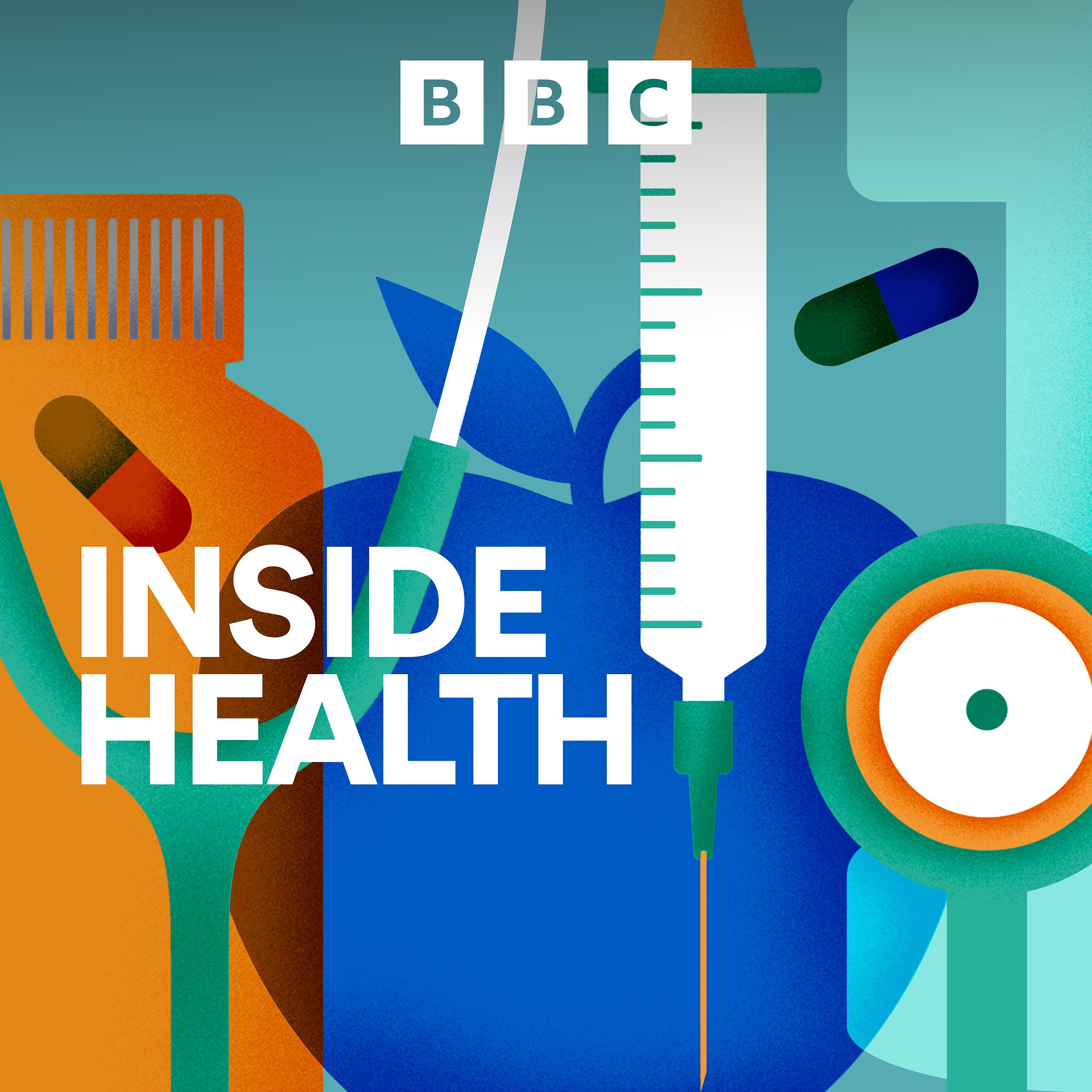

Inside Health
BBC Radio 4
Series that demystifies health issues, separating fact from fiction and bringing clarity to conflicting health advice.
Episodes
Mentioned books

Oct 14, 2014 • 28min
Sickness Absence, Ankle Arthritis, Hot Flushes, Guillain-Barre Syndrome
Inside Health examines advice for when parents should and shouldn't send their sick children to school. Is this another example of the nanny state, or a useful guide?Hip replacements and knee replacements are well known treatments but now a new trial is looking into the effectiveness of ankle surgery for arthritis.Margaret McCartney reveals the origin of the word hypochondria.Plus, how effective is HRT for the commonest symptom of the menopause, hot flushes?And Inside Health answers listeners' questions on Guillain-Barré syndrome, what are the causes and treatments.

Oct 7, 2014 • 28min
Ebola, Painkillers, Immunity (CVID), Integrated Health, Thyroid and Pregnancy
Ebola - how do they predict how it's going to spread, and why estimates have risen so rapidly.In the UK there are 22 million prescriptions a year for morphine type painkillers, costing over 300 million pounds - but do they actually work in non-cancer pain?And a simple blood test that can tell if your recurrent chest infections might be due to an immune problem.Plus thyroid problems and pregnancy.

Sep 30, 2014 • 28min
Antibiotics, Winter Flu, NHS Continuing Healthcare, Snoring
Dr Mark Porter reports on sleep apps, can they help with common sleep problems such as sleep apnoea? A new study reveals the failure of antibiotics for simple infections. Margaret McCartney reviews the evidence and asks is it worth having a flu jab? Plus who is eligible for NHS continuing health care.

Sep 23, 2014 • 28min
Conflict resolution in Ashya King case; GPs near work; Lipoedema
Dr Mark Porter goes on a weekly quest to demystify the health issues that perplex us.

Aug 26, 2014 • 28min
Conflicted Medicine: Public Health Campaigns
Dr Mark Porter examines how powerful lobbying groups like the food and alcohol industries steer public health policy in the direction that suits them most.

Aug 19, 2014 • 28min
Conflicted Medicine: Specialists and GPs
Dr Mark Porter examines the hidden conflicts of interest that may affect how your GP or specialist treats you. He discovers that the advice patient groups give you is also not immune to the influences of organisations such as pharmaceutical companies.

Aug 12, 2014 • 28min
Conflicted Medicine: Pharmaceuticals
Are conflicts of interest in medicine out of control and undermining public trust, or an over-hyped concern? Dr Mark Porter investigates the hidden influences affecting your health.

Aug 5, 2014 • 28min
HIV and MS; Black skin and cancer; Iron overload; Losing your sense of smell
Dr Mark Porter finds out about the latest research investigating why people with HIV very rarely get multiple sclerosis. What does it mean for the cause of MS and possible future treatments? Also in the programme how much is black skin at reduced risk of skin cancer from exposure to the sun? Why iron overload can often go undiagnosed and the training for the nose that can help recover a lost sense of smell.

Jul 29, 2014 • 28min
Back pain and paracetamol, blood thinning drugs, drug driving, kidney stones
Mark Porter investigates a new research trial which shows that paracetamol doesn't help back pain. And why are blood thinning drugs being overused in NHS hospitals? New laws on limits for driving on prescribed drugs come into force in March 2015. Which prescription drugs are included and what does it mean for people taking them? Also in the programme, can any medications help get rid of kidney stones?

Jul 22, 2014 • 28min
Statins, Cholesterol-lowering spreads, Olive oil, Diet and inflammatory bowel disease, Singers' nodules
Some media coverage has suggested that there is a link between eating junk food and the rise of conditions like Crohn's disease and ulcerative colitis which involve inflammation of the digestive system. Mark Porter questions the evidence. As school's out for summer Mark finds out why teachers' voices need a rest. He also examines whether cholesterol lowering spreads and drinks do what they suggest. Also in the programme: is frying with olive oil harmful or the healthy choice?


